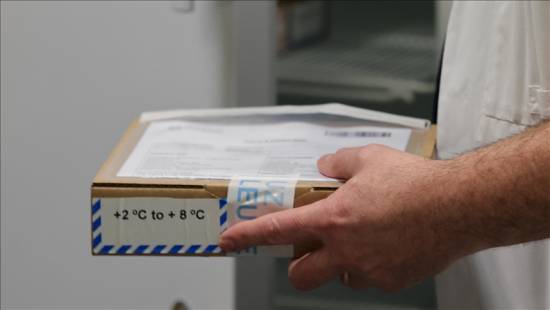Five EU countries called on the bloc Wednesday to ensure funding to reinforce COVID-19 vaccine production and to adapt vaccination programs to new variants.
A letter signed by the prime ministers of Spain, Belgium, Denmark, Lithuania and Poland calling for more production facilities was sent to European Council President Charles Michel and other EU leaders prior to an EU leaders summit to be held via videoconference from Feb. 25-26.
Noting the importance of working together with the European Commission to tackle the problems of production capacities, it said: "We need to work closely with all potential vaccine producers in Europe, boosting public-private partnerships across the entire value chain to increase R&D efforts, ramp-up and adapt supply capacity."
While EU countries, which started COVID-19 vaccination in December 2020, are far behind their targets so far, they are experiencing logistics, personnel and supply problems.
"We should be ready to look openly at the possible ways and the need to ensure funding to facilitate the efforts. The approach should reflect that we cannot afford to lose this battle," it said.
Stressing the urgency of reinforcement of the vaccine production capacities in Europe, it added: "We need to provide the right support to Europe-based producers in case unexpected problems emerge during the production process. Existing production facilities will need to be adapted."
The EU has so far received 40.7 million of the 106 million doses of vaccines it expects to obtain in the first quarter of the year. It has focused on vaccine production with 16 factories in the EU due to delays in vaccine delivery.
The EU had made agreements with six companies to receive approximately 2.3 billion vaccine doses.
The letter said the extraordinary EU summit this week comes at the right time.
“Europe's timely access to sufficient vaccine remains an unsolved challenge. In spite of the unprecedented speedy development of new high-quality vaccines, production difficulties are ongoing and lead to major delays," the letter said./aa


